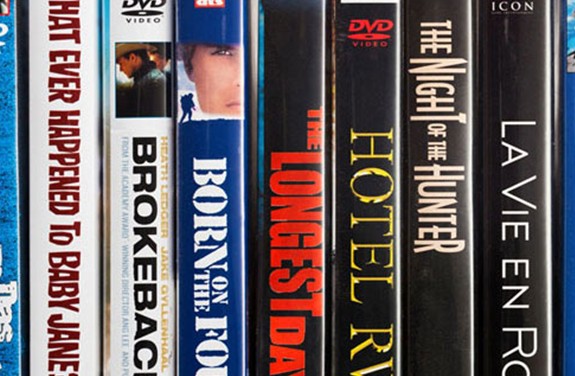『继图书、报纸以及唱片之后,好莱坞的影碟产业似乎也将成为高科技时代的又一个牺牲品,在此背景下,好莱坞应如何顺应时代发展,守住电影事业这座金山?』
Hollywood's disc problem
好莱坞影碟危机
March 17th, 2011 | From The Economist

IN “THE RING”, a Hollywood remake of a Japanese horror film, a videotape has a deadly effect on those who watch it. In reality the opposite is happening: viewers are killing Hollywood’s home-video business. People are rapidly discovering new ways of watching films at home that pose a grave threat to the most profitable part of the film business.
In America, by far the biggest home-entertainment market, spending on videotapes and discs has dropped by 29% since 2004. Piracy is one reason. Another is the end of the format-replacement cycle: once you have a DVD of “Casablanca” you don’t need another one—and you probably won’t buy a high-definition Blu-ray disc, either. But the big reason is the rise of cheap, convenient rental outfits like Redbox, which runs kiosks, and Netflix, which streams some films and sends others through the post. The move from buying to renting is a calamity for Hollywood, a low-margin business that has come to rely on disc sales to push films into profitability.
Like music, newspapers and books before it, the film business has been disrupted by innovative, fast-moving distributors whose products have caught on with the public. Tinseltown’s attempts so far to see off the threat have fallen flat, partly because the studios have failed to co-ordinate their efforts. But if Hollywood moves quickly and boldly it should be able to disrupt the disrupters.
Led by Sony, a consortium of studios, technology firms and retailers are working on a new way of distributing digital copies of films. The idea is that consumers will be able to buy the rights to films stored “in the cloud” and stream them to any device. That should make buying more appealing. But it also gives the studios an opportunity to go straight to consumers.
At the moment Hollywood is a business-to-business industry: it rents films to cinema chains and ships discs to big-box retailers and rental firms. Digital distribution should allow it to become much more consumer-facing. The studios could greatly expand their efforts to sell films directly. They could offer to upgrade existing DVDs to digital files. At a minimum, they could develop customer databases that they could use to refine their marketing campaigns. The studios are old-school advertisers: every year they spend billions of dollars on scattershot campaigns that often hit the wrong people. Every dollar spent trying to persuade a grandmother to see a Quentin Tarantino film is a dollar wasted (Quentin’s granny excepted).
Disney and Pixar are brands, but most studios are not. Nobody goes to see a film because it is made by Fox. Increasingly though the films they release are brands—consider “Harry Potter” or “Pirates of the Caribbean”. The studios also employ actors and directors who are brands in their own right. They should market directly to people who love those brands.
It will not be easy to take such a radical step. But the trail has been blazed by another medium. Record labels have been hit much harder by piracy and have seen retail outlets disappear. They have been forced to deal directly with consumers. Lady Gaga’s website is run not by the pop star but by Universal Music, which uses it, and the consumer information it collects, to sell directly to her fans. That outfit has become far better at mining consumer data than the film studios. A common refrain in Hollywood is that the film business must not go the way of music. In this sense, at least, it should.








